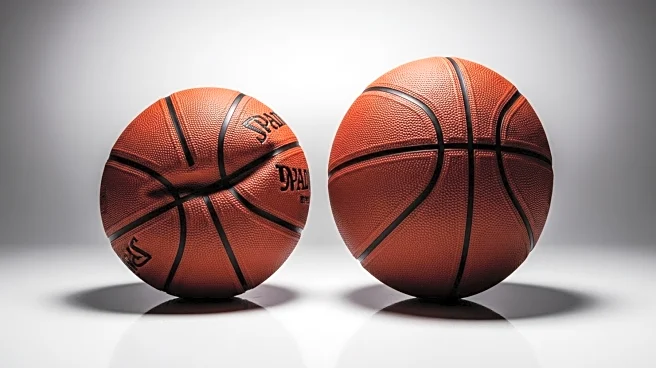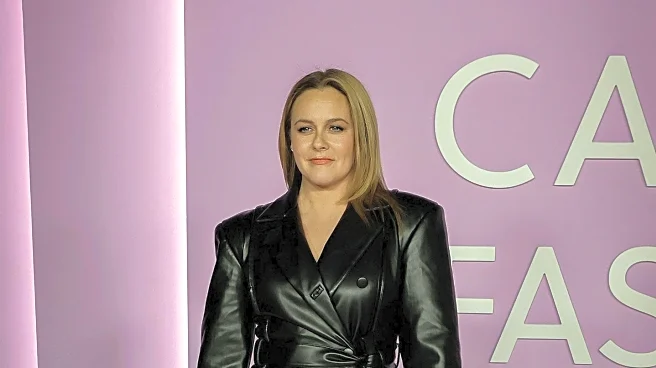What's Happening?
Kendrick Perkins, a former NBA player and current media personality, disclosed that his friendship with Russell Westbrook ended due to a comment he made during a television broadcast. Perkins had advised Westbrook to 'temper it down' to avoid running himself out of the league, based on conversations with NBA general managers. This advice, given when Westbrook was with the Lakers, proved prescient as Westbrook now finds himself without a team ahead of the 2025-26 NBA season. The situation escalated to involve their families, and Westbrook was reportedly insulted by the warning. Perkins shared these insights during a podcast with Richard Jefferson, highlighting the impact of his professional advice on their personal relationship.
Why It's Important?
The fallout between Kendrick Perkins and Russell Westbrook underscores the delicate balance between professional advice and personal relationships in sports. Westbrook's current status as a free agent, despite his impressive statistics last season, reflects the challenges athletes face in maintaining their careers amidst changing team dynamics and management decisions. This situation highlights the potential consequences of not adapting one's playing style to the evolving demands of the league. It also illustrates the influence media personalities can have on athletes' careers, as Perkins' comments were based on insider information from NBA general managers.
What's Next?
With the NBA season approaching, Russell Westbrook's future remains uncertain. As he is not currently on a roster, the possibility of him joining a team before the season starts is diminishing. The Sacramento Kings were reportedly the only team showing interest, but no deal has been finalized. Westbrook's decision to decline his player option with the Denver Nuggets has left him in a precarious position, and it remains to be seen if he will adjust his playing style to align with team needs and secure a spot in the league.
Beyond the Headlines
The situation between Perkins and Westbrook highlights broader themes in professional sports, such as the impact of media narratives on athletes' careers and the importance of adaptability in maintaining longevity in competitive environments. It also raises questions about the role of former players as analysts and their influence on public perception and team decisions. The personal fallout between the two former teammates serves as a reminder of the complex interplay between personal relationships and professional responsibilities in the sports industry.









